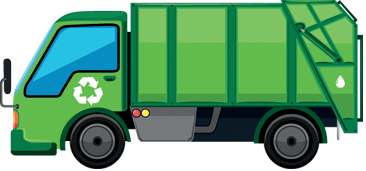Gloomy predictions and scenarios on how the planet runs out of energy resources may not be as farfetched as they initially seemed. Although alternative energy sources are in the making (and likely some of them are ready) people need to get in that specific mind frame and understand that rubbish removal and disposal are just the tip of the iceberg.
Separating glass from plastics and papers and so forth is indeed a great way to make rubbish removal and disposal more efficient and recycling easier, but the bottom line is people need to stop wasting and start preserving. Sustainable living doesn’t necessarily mean being a hermit in the remote bush, but sustainable living needs thoughtful and responsible existence on a daily basis.
Let’s bring up the almighty soft drink can example (there is something so logical about rubbish removal and recycling and using tin cans as example). Soft drink cans account for mere one percent of the solid waste stream in North America, which is good news because this one percent shows that most of the cans are in fact recycled. Even so, the energy required to replace the cans wasted in the now-distant two thousand one will add up to sixteen million barrels of crude oil. This amount of crude oil is enough to power all the homes, for one year, in the cities of Chicago, Detroit, Dallas, San Francisco and Seattle.
 Since entering the digital age, e-waste or electronic equipment waste has been growing steadily year after year. Electronic products are made using different plastics and metals (some of them precious). Your rubbish removal people won’t mind tossing out your old computer, but the environment will as plastics, metals and glass components are non-degradable (although they don’t necessarily become toxic after time). Since the moment e-waste has entered the scene, more than eighty five percent of all redundant or damaged electronics go un-recycled i.e. they simply end up in landfills. In kilos – three million tons of electronics rubbish enter the waste stream every year.
Since entering the digital age, e-waste or electronic equipment waste has been growing steadily year after year. Electronic products are made using different plastics and metals (some of them precious). Your rubbish removal people won’t mind tossing out your old computer, but the environment will as plastics, metals and glass components are non-degradable (although they don’t necessarily become toxic after time). Since the moment e-waste has entered the scene, more than eighty five percent of all redundant or damaged electronics go un-recycled i.e. they simply end up in landfills. In kilos – three million tons of electronics rubbish enter the waste stream every year.
Plastic bags are another plague for the environment and also create a lot of hassle for rubbish removal and disposal authorities. Problem with plastic bags is that everyone around the world seems to love using them for whatever necessary, even though everyone knows the damage plastic bags do. In North America, the average residential rubbish bin (on a weekly basis) will contain about twelve percent plastic waste. The average plastic bag will take about one thousand years to dissolve in the environment. In North America, each year people throw out two hundred million plastic bags, on a worldwide scale humans toss out four billion plastic bags annually.
Rubbish removal, disposal and recycling also focus on glass waste. Generally glass is a hard to manufacture, energy intensive material, which is also more expensive than plastic. Making glass products from recycled materials is good news for the environment as this reduces the need for raw materials like soda ash, limestone, sand, etc. – all necessary for making glass. In North America, only about twenty two percent of all glass waste is actually recycled.

